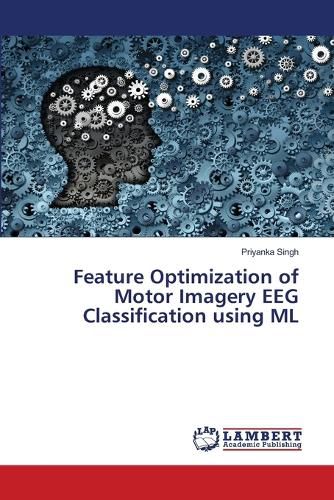Readings Newsletter
Become a Readings Member to make your shopping experience even easier.
Sign in or sign up for free!
You’re not far away from qualifying for FREE standard shipping within Australia
You’ve qualified for FREE standard shipping within Australia
The cart is loading…






Brain-computer interfaces (BCIs) hold great promise in biomedical engineering, particularly for diagnosing critical diseases. Motor imagery (MI) EEG classification, a key BCI process, faces challenges due to the complexity and non-stationary nature of EEG signals. These signals, recorded via electrodes, are digitized and analyzed using feature extraction techniques like FFT, STFT, CSP, and wavelet transforms, with wavelet transform being the most effective.This study proposes a deep neural network-based classification algorithm with teacher-learning-based optimization for feature refinement. Tested on a standard BCI dataset in MATLAB, the algorithm surpasses Bayesian and ensemble machine learning classifiers, enhancing classification accuracy and BCI system performance.
$9.00 standard shipping within Australia
FREE standard shipping within Australia for orders over $100.00
Express & International shipping calculated at checkout
Brain-computer interfaces (BCIs) hold great promise in biomedical engineering, particularly for diagnosing critical diseases. Motor imagery (MI) EEG classification, a key BCI process, faces challenges due to the complexity and non-stationary nature of EEG signals. These signals, recorded via electrodes, are digitized and analyzed using feature extraction techniques like FFT, STFT, CSP, and wavelet transforms, with wavelet transform being the most effective.This study proposes a deep neural network-based classification algorithm with teacher-learning-based optimization for feature refinement. Tested on a standard BCI dataset in MATLAB, the algorithm surpasses Bayesian and ensemble machine learning classifiers, enhancing classification accuracy and BCI system performance.